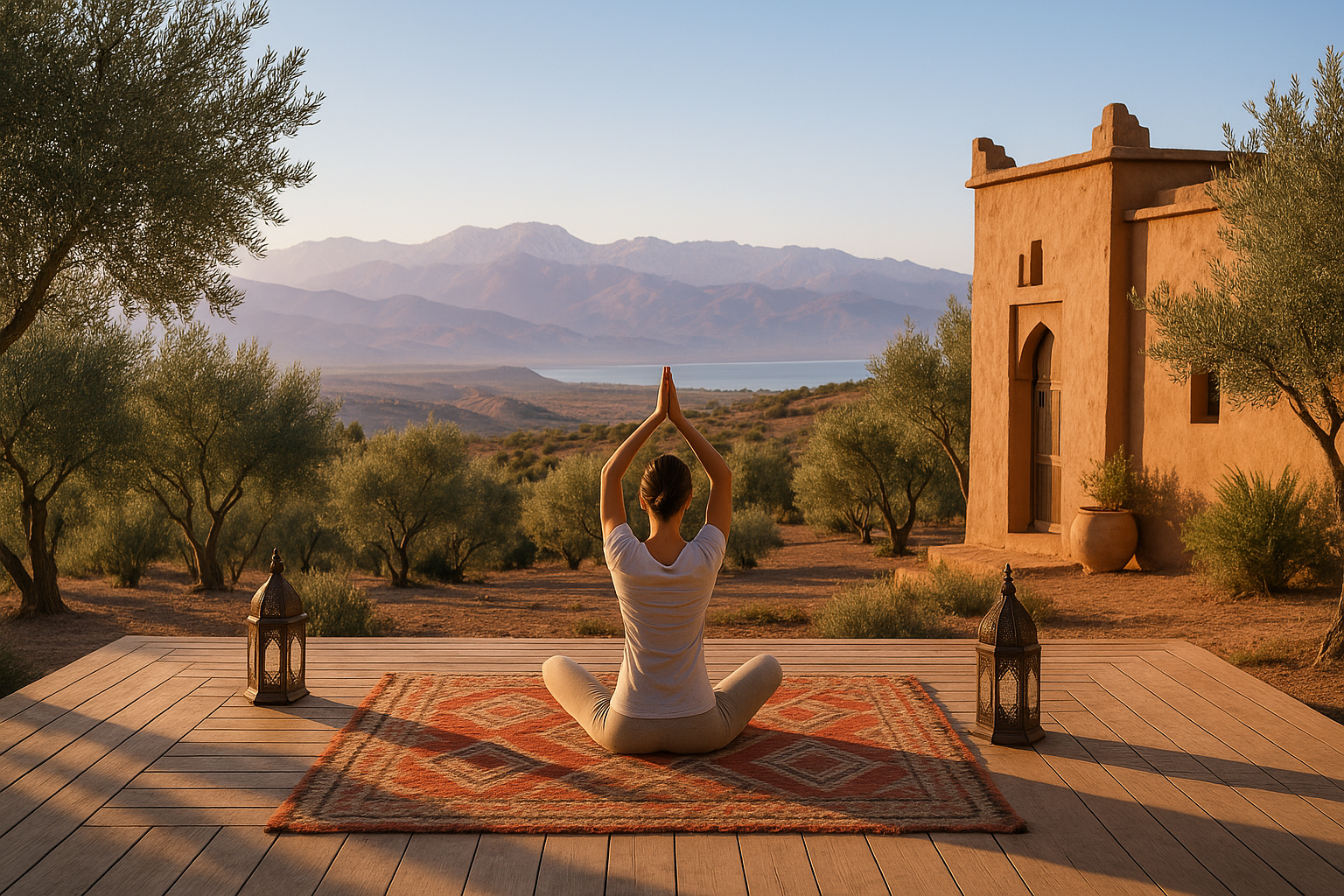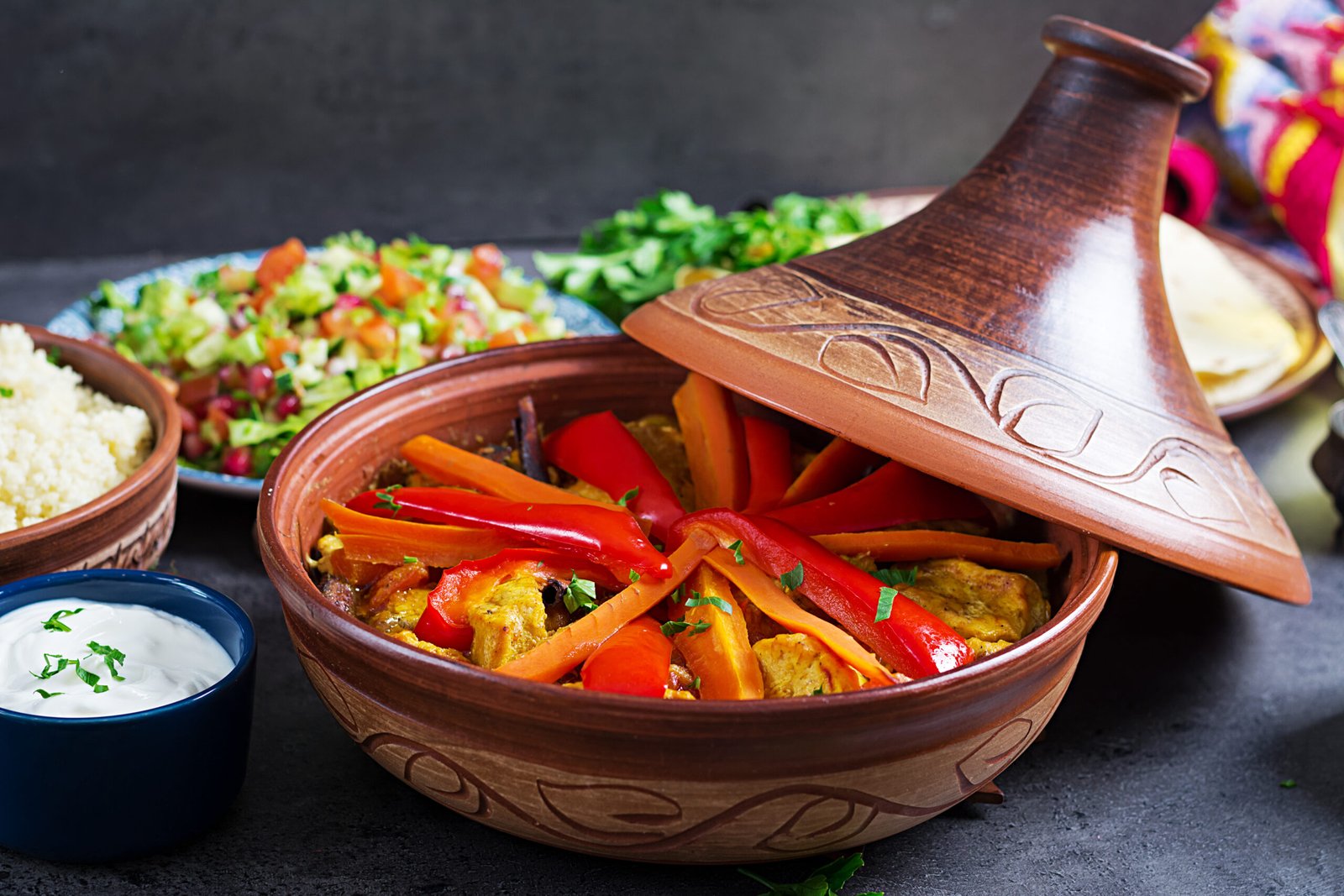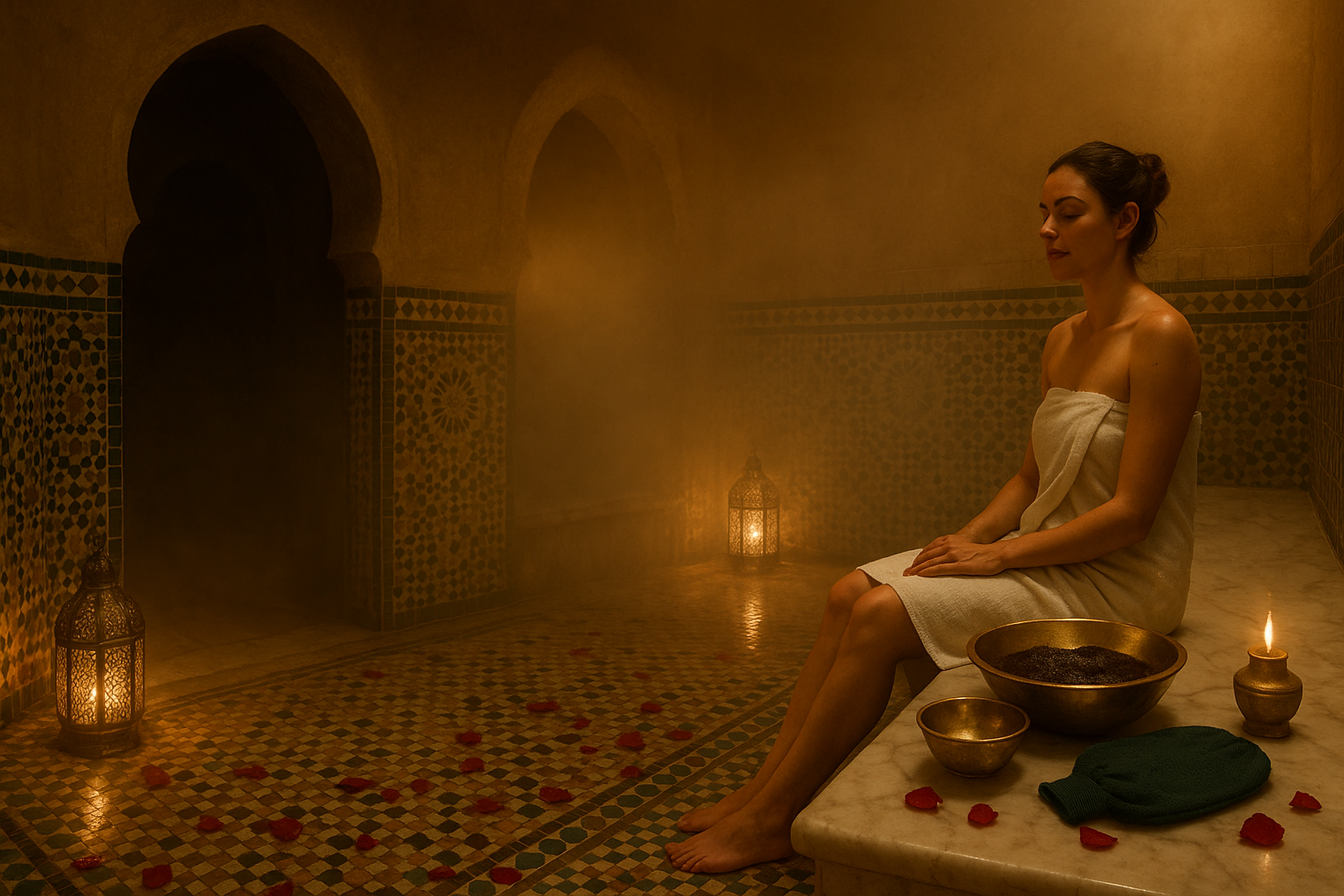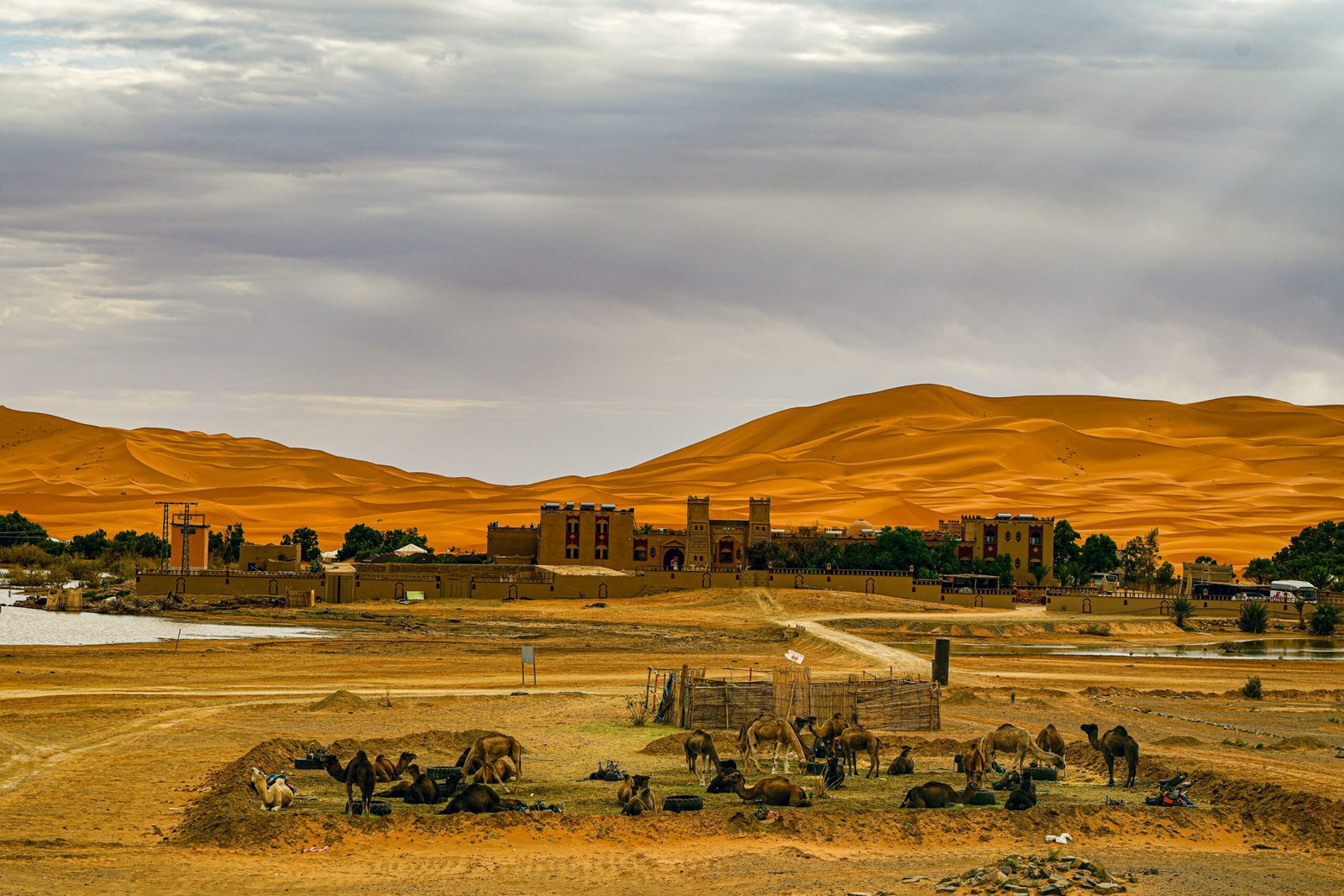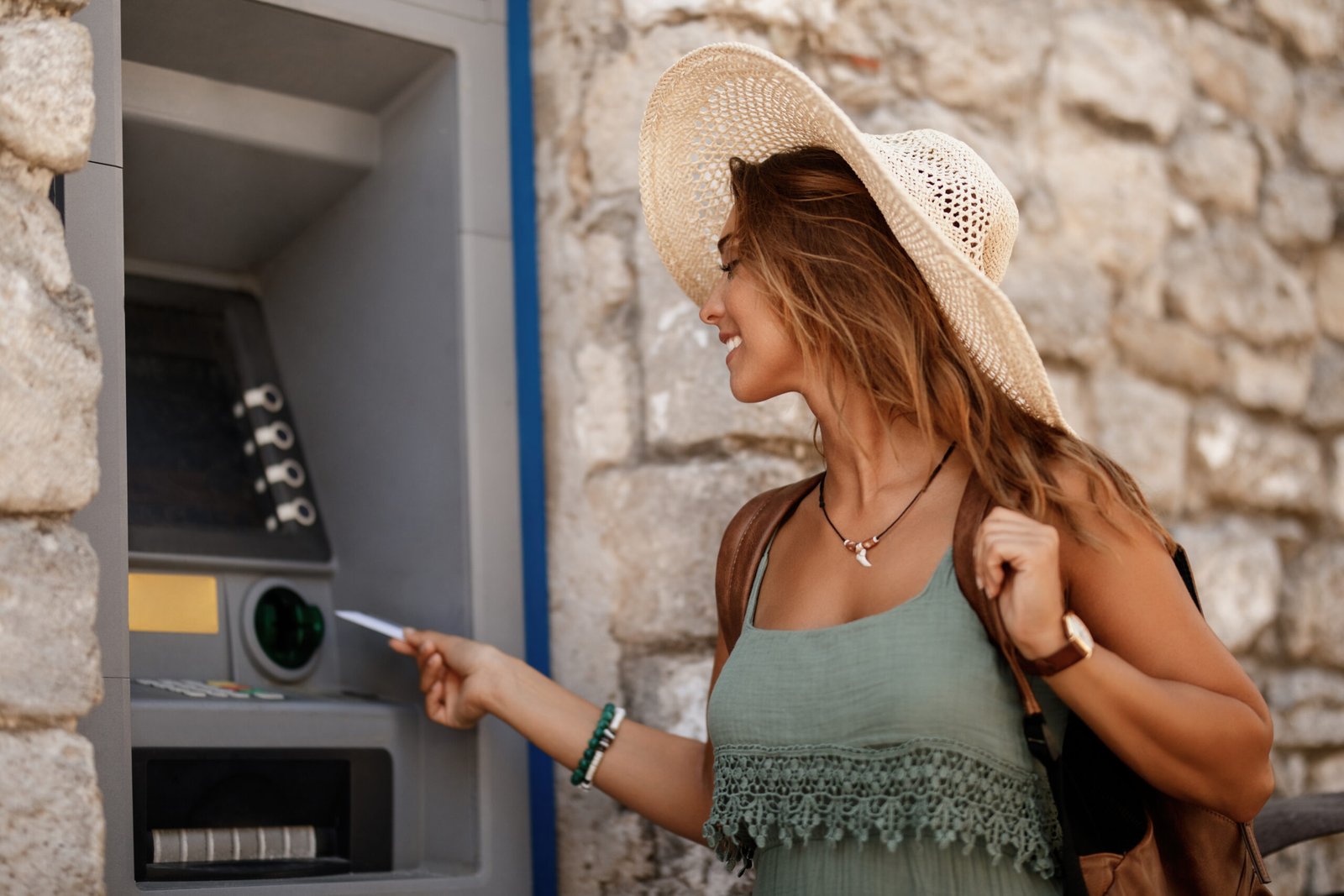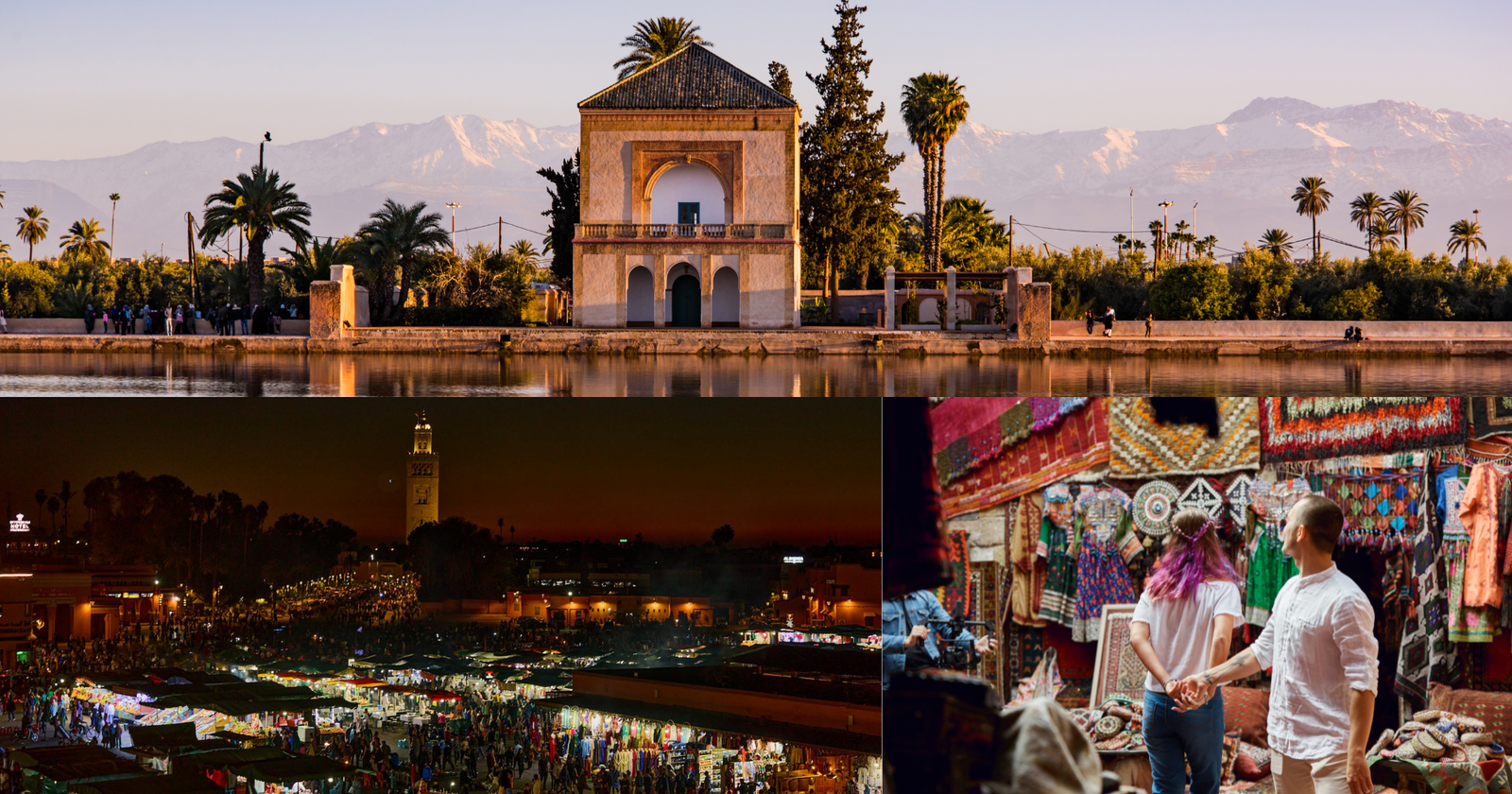Explore Morocco‘s lively medinas and souks, where haggling is a big deal. Over 80% of Moroccan shoppers love to negotiate prices. As you stroll the hidden alleys of Morocco, fragrant spices and the smell of hot bread turn every corner into a sensory delight.
When you travel to Morocco, you’ll see markets full of local crafts, textiles, and souvenirs. To really experience Moroccan culture, you must learn to haggle like a local. This skill gets you better deals and helps you connect with the vendors.
Knowing the local customs and being ready will make you feel confident in these markets.
The Enchanting World of Moroccan Medinas and Souks
The world of Moroccan medinas and souks is magical. Every visit is a journey through history and culture. You’ll find it’s not just about shopping, but experiencing the local way of life.
What is a Medina?
A medina is the old city or historic center of a Moroccan town. It’s surrounded by walls and has narrow, winding streets. These areas are filled with history and architecture, giving a peek into Morocco’s past.
The medina is where you’ll find many souks, or markets. These markets are key to Moroccan commerce and culture.
Understanding the Souk Ecosystem
A souk, or souq, is a marketplace with a wide range of goods. You can find spices, textiles, jewelry, and handicrafts. The souk ecosystem is complex, with vendors and artisans selling their wares in a vibrant setting.
The souks are organized into different sections. Each section specializes in specific goods. For example, there might be a section for leather goods and another for colorful textiles. This makes it easier for vendors and shoppers to find what they need.
The Cultural Significance of Markets in Moroccan Life
Markets are vital in Moroccan daily life. They’re not just for buying and selling, but also as social hubs. The souks reflect the country’s cultural heritage and traditions.
In Morocco, haggling is an art form. The souks are the perfect place to practice this skill. By understanding the cultural significance of these markets, you’ll enjoy a more authentic experience.
Why You Should Explore Morocco’s Traditional Markets
In Morocco’s medinas, you’ll find more than just goods. You’ll discover the soul of Morocco. The vibrant souks offer a sensory overload of colors, sounds, and scents.
The Cultural Importance of Souks in Daily Life
Morocco’s traditional markets, or souks, are more than just places to buy things. They are the heart of daily life in many cities. Here, locals socialize, share news, and do business.
For travelers, souks offer a peek into Moroccan life. They are cultural treasures, filled with local handicrafts, textiles, and food. By exploring, you support local artisans and help keep traditional crafts alive.
How Markets Connect Travelers to Authentic Morocco
Visiting Morocco’s souks lets you discover Morocco deeply. You can talk to vendors, learn about their products, and hear their stories. This connection makes your morocco travel more meaningful.
From Marrakech’s Jemaa el-Fnaa to Chefchaouen’s markets, each souk has its own flavor. Whether you’re looking at textiles or trying local foods, you’re experiencing Morocco’s true essence.
What Makes Moroccan Souks Different from Other Markets
Moroccan souks are special because of their tradition, craftsmanship, and hospitality. They’re lively places where haggling is an art and every deal is a social event.
The variety of goods, from metalwork to spices, shows Morocco’s history as a trade crossroads. Exploring these markets, you’ll find each item has a story of Morocco’s history and culture. Your visit to marrakech tours or casablanca attractions will be unforgettable.
The Cultural Significance of Haggling in Morocco
Exploring Morocco’s medinas, you’ll find haggling is key to shopping. The souks burst with colors, sounds, and smells. Haggling is the rhythm that ties it all together.
Haggling in Morocco is more than finding a good price. It’s a cultural ritual that shows respect, community, and negotiation skills. It’s a dance where both sides try to find common ground.
Why Fixed Prices Are Rare in Traditional Markets
In Morocco’s traditional markets, fixed prices are rare. Haggling is expected. Vendors start high to leave room for negotiation.
This approach lets both sides play a dynamic pricing game. It’s influenced by the product’s value, the buyer’s skills, and the vendor’s need to sell.
How Haggling Builds Relationships with Locals
Haggling in Morocco is about more than just buying. It’s about building connections with vendors. This interaction can deepen your understanding of local culture and create a bond between buyer and seller.
By haggling, you show respect for the vendor’s work and the value they add. This mutual respect makes the experience better for everyone.
The Psychology Behind Moroccan Price Negotiations
The psychology of Moroccan price negotiations is complex. It involves understanding human behavior, cultural norms, and negotiation dynamics. Vendors use tactics like urgency or scarcity to sway buyers.
As a buyer, knowing these tactics can help you haggle better. Being aware of these strategies lets you make informed choices and negotiate fair prices.
Preparing for Your Haggling Adventure
Getting ready for haggling in Moroccan markets can be fun and rewarding. Here are some tips to help you improve your haggling skills. They will make your time in Morocco’s souks more enjoyable.
Research Fair Prices Beforehand
It’s smart to know the fair prices of items you want to buy before you go. This knowledge helps you negotiate better. Look up prices online, ask travelers, or check fixed-price stores. For example, knowing prices in Tangier for local crafts will help you feel confident in the souks.
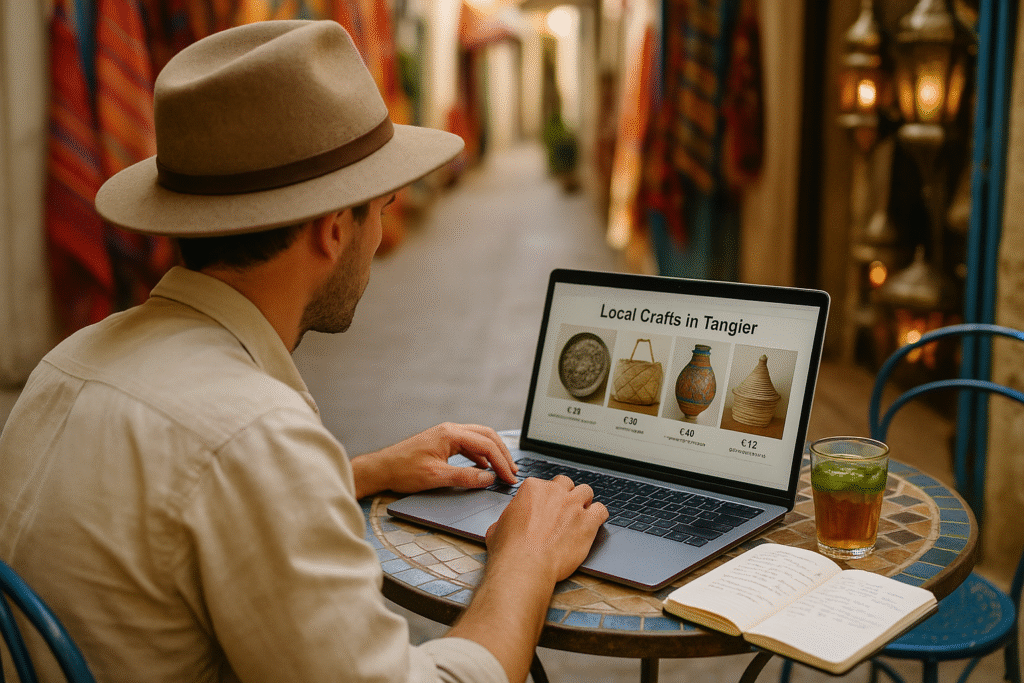
Learn Key Arabic and Berber Phrases
Knowing a few Arabic or Berber phrases can really help. Sayings like “hello” (as-salamu alaykum), “thank you” (shukraan), and “how much?” (bikam?) can make a big difference. In Fez, speaking the local language will make your visit even better.
Dress and Behave Appropriately
Dressing modestly and being respectful is key when dealing with vendors. Wearing conservative clothes shows respect for the culture. Being polite, smiling, and showing interest in products also helps. In Chefchaouen, dressing right will earn you respect too.
Timing Your Visit for the Best Experience
When you visit the souks can affect your haggling. Going when it’s less busy is better because vendors might be more willing to negotiate. Early morning or late afternoon are good times. Plan your Morocco travel to visit popular souks then for a better experience.
By following these tips, you’ll be ready to enjoy the Moroccan souks. Whether in Marrakech or Chefchaouen, being prepared will make your trip better. You’ll get to take home unique souvenirs.
The Art of Moroccan Haggling: Step-by-Step Guide
Moroccan haggling is like a dance, a balance between buyer and seller. It can lead to memorable travel experiences. As you explore the souks, knowing how to haggle will get you better deals and connect you with locals.
Starting the Conversation Right
Start with a friendly greeting, like “As-salamu alaykum” (peace be upon you). Show interest in the product or the vendor’s story. This sets a positive tone for the negotiation.
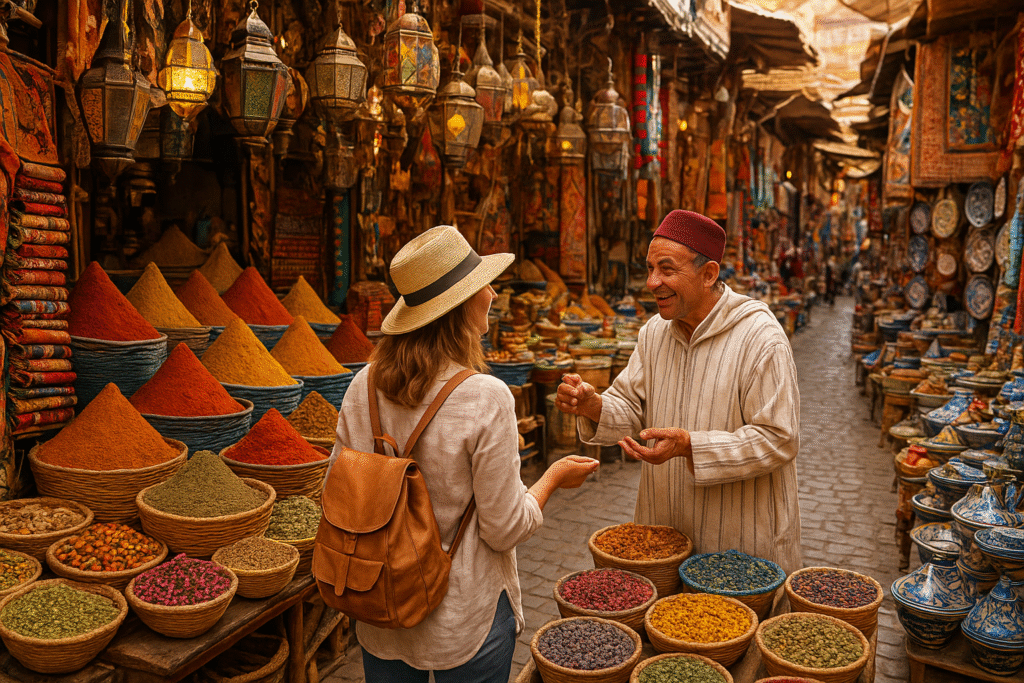
The Opening Offer Strategy
The vendor’s first price is often too high. Start with a lower offer, about 30-40% of the initial price. For example, if a carpet is 1000 MAD, offer 300-400 MAD. This leaves room for negotiation and shows you’re serious.
Effective Counteroffer Techniques
Be ready to counter the vendor’s offer. It’s a back-and-forth to find a fair price. Say “Shukran” (thank you) for their offer and explain your counteroffer. Aim for a fair price, not to win.
Reading Body Language and Verbal Cues
Watch the vendor’s body language and words. If they seem hesitant or make quick concessions, they might be open to more reductions. If they seem firm or annoyed, it’s time to accept their offer or walk away.
Mastering these steps will make you skilled in Moroccan haggling. You’ll enjoy your time in the souks more. Whether in Marrakech or Fez, your Marrakech tours will be unforgettable.
Haggling Strategies for Different Moroccan Goods
To get the most out of your visit to Morocco’s souks, learning specific haggling techniques is key. The art of negotiation varies by product, from carpets to leather goods. Knowing how to haggle can greatly impact your shopping experience.
Negotiating for Carpets and Textiles
Carpets and textiles are highly sought after in Moroccan souks. It’s important to inspect the product carefully for any flaws. Start by making an offer that’s lower than you’re willing to pay.
Be ready to walk away if the price isn’t right. Vendors often lower their prices when they see you’re serious about leaving.
Bargaining for Leather Goods
Leather goods like bags and shoes are popular in Moroccan markets. When bargaining, check the quality of the leather and the craftsmanship. Compare prices at different stalls to find a fair range.
Don’t hesitate to negotiate the price based on any imperfections or the design’s simplicity.
Getting the Best Price on Metalwork and Lamps
Metalwork and lamps vary in complexity. When haggling, consider the craftsmanship and materials used. For metalwork, look for any signs of poor quality or defects.
Start with a low offer and be open to meeting the vendor halfway. For lamps, ensure the electrical components are functional.
Haggling for Ceramics and Pottery
Ceramics and pottery add color to Moroccan craftsmanship. When haggling, look for any imperfections like chips or cracks. Buying in bulk can also help get a better price.
Be respectful in your negotiations, as artisans take pride in their work. Showing appreciation for the craftsmanship can lead to a more favorable price.
Regional Differences: Haggling Across Morocco’s Famous Markets
Traveling through Morocco, you’ll see haggling styles change a lot. Each city’s market culture is influenced by its history, culture, and goods sold. Knowing these differences helps you shop better and enjoy the experience more.
Marrakech’s Jemaa el-Fnaa and Surrounding Souks
Marrakech’s Jemaa el-Fnaa square is famous for haggling. Vendors here are bold in their sales. To get good deals, haggle hard and be ready to leave if the price is too high. For carpets and textiles, you can cut prices by up to 50%.
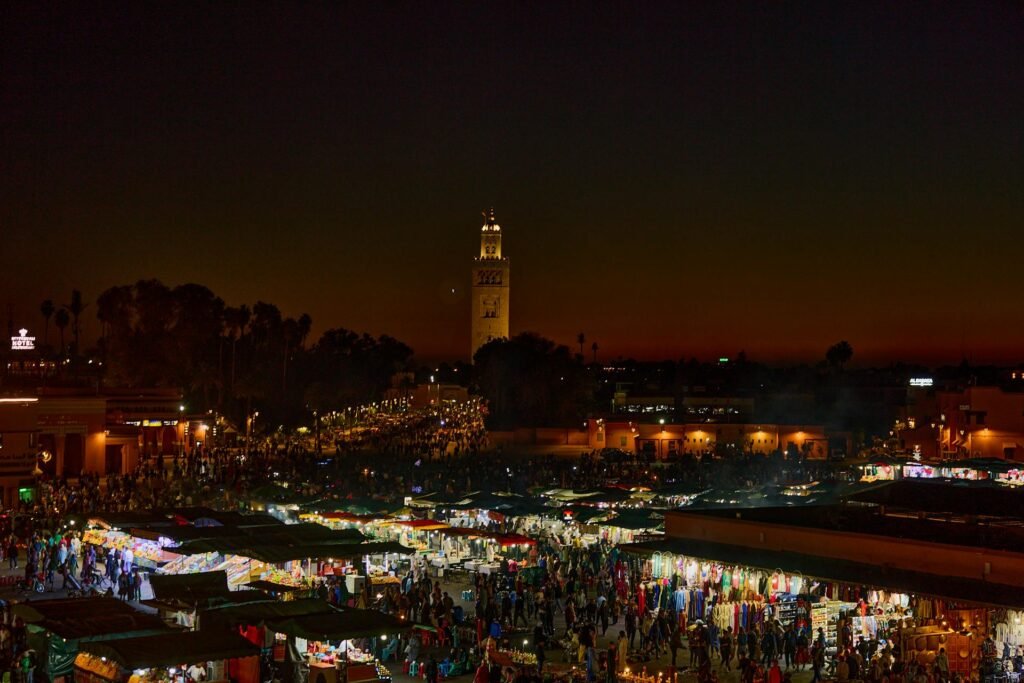
Fez’s Ancient Medina Experience
Fez’s medina is quieter than Marrakech’s. The old streets and atmosphere are cozy. Sellers here might chat more. When shopping for traditional crafts and historical artifacts, take your time to connect with them and negotiate.
Casablanca’s Modern Market Approach
Casablanca’s markets are modern and less intense. Some vendors have fixed prices, but try to negotiate. Be polite when buying leather goods or modern jewelry, and you might get a better price.
Chefchaouen’s Blue City Boutiques
Chefchaouen is known for its blue buildings and relaxed shopping. It’s famous for handicrafts and local textiles. Haggling here is easy-going. Take your time, and make offers. The locals are friendly and might negotiate more if you buy several items.
In summary, knowing how to haggle in Morocco’s markets makes shopping better. Whether in Marrakech’s busy souks or Chefchaouen’s calm boutiques, understanding local customs helps you shop with confidence and respect.
Cultural Etiquette: Do’s and Don’ts in Moroccan Markets
Exploring Morocco’s lively souks requires knowing the cultural rules. These markets are more than places to buy things. They are cultural centers where traditions and customs are part of daily life.
Respectful Behaviors That Earn Better Prices
To get better deals and enjoy your time, being respectful is key. Smile and greet vendors warmly to start on a good note. Saying “As-salamu alaykum” (peace be upon you) in Arabic can also make vendors friendlier.
Being patient and not rushing is important. Moroccans value building relationships and see haggling as a way to do so. Showing interest in the product’s story can also help.
Offensive Actions to Avoid
Some actions can offend vendors or locals, ruining your haggling. Avoid being too aggressive or confrontational during talks. Starting with a very low offer can also be seen as rude.
Don’t show frustration or anger, as it can ruin talks. Keeping calm and respectful, even when disagreeing, is key.
Photography Etiquette in Souks
Always ask permission before taking photos in Moroccan souks. It’s not just polite, it’s necessary. Saying “Maghribi?” (Can I take a photo?) shows respect.
Some vendors might ask for a small fee for photos. Being open to negotiate this fee is part of the etiquette.
Tipping Practices and Expectations
Tipping in Morocco’s souks is expected in some cases. For services like carrying goods or help from guides, a small tip is nice. A few dirhams is usually enough for minor services.
Remember, tipping shows you appreciate good service. It can make your interactions better. Also, some vendors might already include a service charge, so check before tipping extra.
Navigating the Maze: Practical Tips for Medina Shopping
The medinas of Morocco are like a treasure hunt. They are full of narrow alleys and ancient buildings. Getting lost is all part of the fun. But, with some tips, you can find the best treasures.
Using Maps and Landmarks Effectively
Maps and landmarks are key to navigating a medina. At first, the alleys might seem confusing. But, a map helps you understand the layout and plan your path.
- Download a reliable map app on your smartphone that works offline.
- Identify major landmarks such as mosques, public squares, or historic buildings.
- Use these landmarks as reference points to navigate through the medina.
Hiring Local Guides: Pros and Cons
Local guides can be very helpful in a medina. They know the area well. But, there are both good and bad sides to consider.
Pros:
- Guides can show you hidden gems you might miss on your own.
- They can share interesting facts about the local culture and history.
Cons:
- Guides can cost extra money.
- Some might focus more on selling things than giving a real experience.
Managing Your Purchases Throughout the Day
As you wander the medina, you’ll see many souks and stalls. They sell everything from crafts to spices. It’s important to manage your shopping well.
- Make a list of what you want to buy.
- Carry a small bag to hold your items.
- Be polite but firm when negotiating prices.
Transportation Options for Your Treasures
After shopping, you’ll need to get your items home. Morocco has many ways to travel, from taxis to public transport.
- For small items, carry them or use a taxi.
- For bigger items, you might need a private car or delivery service.
- Check with your airline for luggage rules before buying too much.
Staying Safe: Avoiding Scams and Ensuring Personal Security
Exploring Morocco’s markets is exciting, but safety is key. The lively souks and medinas can be challenging for tourists.
Common Scams in Moroccan Markets
Moroccan markets have scams, like overcharging tourists. Watch out for friendly locals who might steal from you.
- Be wary of deals that seem too good to be true.
- Never leave your belongings unattended.
- Keep your valuables secure and consider using a money belt.
Keeping Your Belongings Secure
Pickpocketing and theft are common in crowded places. Keep your bags closed and stay alert.
Tips for securing your belongings:
- Use a bag that is difficult to open quickly.
- Avoid displaying expensive items.
- Keep your wallet in a front pocket.
Dealing with Persistent Vendors
Some vendors can be too pushy. Saying “no thank you” firmly works. Walking away is okay if they won’t stop.
Remember, it’s your shopping experience:
- Don’t feel obligated to make a purchase.
- Take your time to browse and compare prices.
- Engage with vendors who respect your boundaries.
Emergency Contacts and Resources
Having emergency contacts is vital. Keep your embassy, local services, and hotel info handy.
Staying informed:
- Register with your government’s travel advisory service.
- Stay updated on local conditions.
- Keep important phone numbers handy.
Knowing about scams, keeping things secure, and having emergency numbers can make your Morocco trip safer and more enjoyable.
Conclusion: Bringing Morocco’s Magic Home
Exploring Morocco and its culture is an unforgettable experience. The memories you’ve made in medinas and souks will last forever. Discover Morocco’s rich heritage by haggling like a local, and bring a piece of this enchanting world back home.
You’ve learned to navigate the bustling markets and negotiate prices with confidence. Reflecting on your journey, you’ll see that Morocco’s magic is in its people and stories. Not just its goods.
Whether it’s the vibrant colors, patterns, or warm hospitality, Moroccan culture captures the heart. Reliving your adventures and sharing them with others will keep Morocco’s spirit alive. It will inspire your future travels and cultural explorations.

